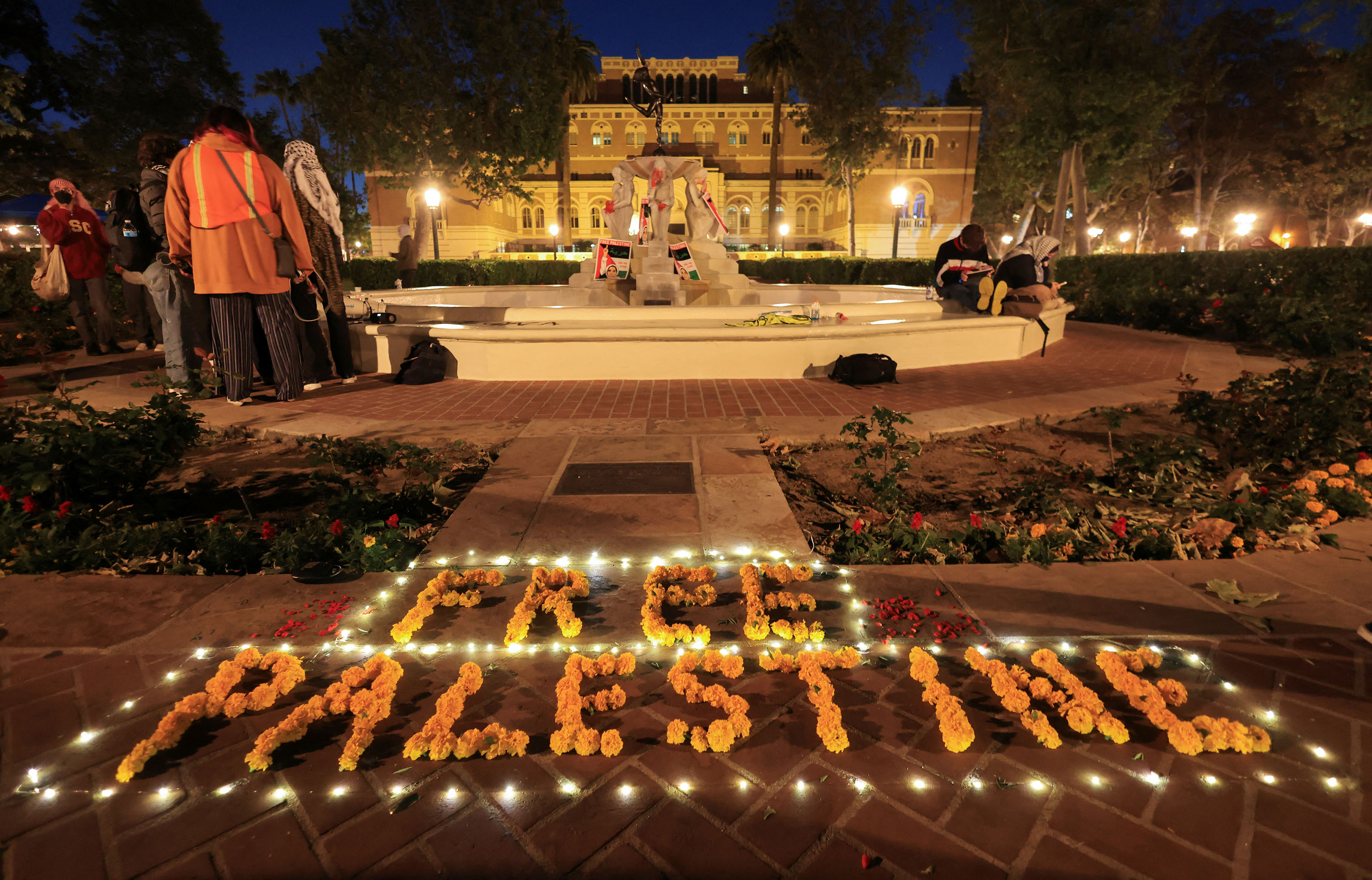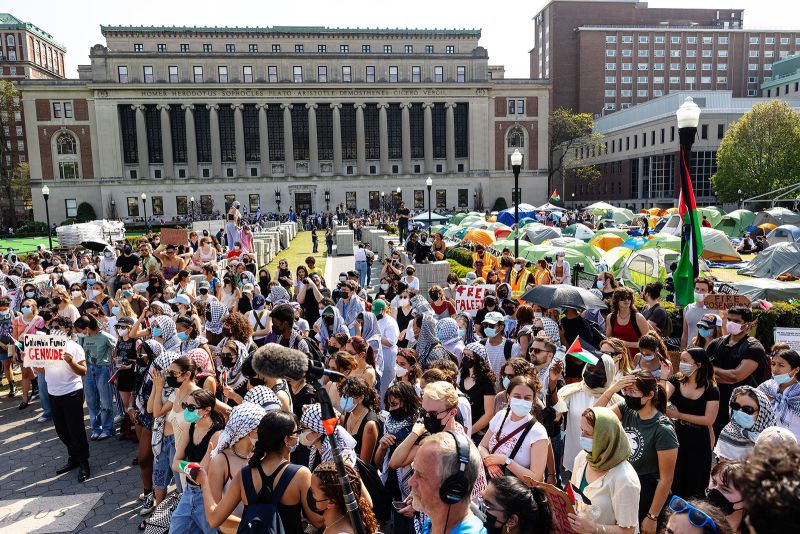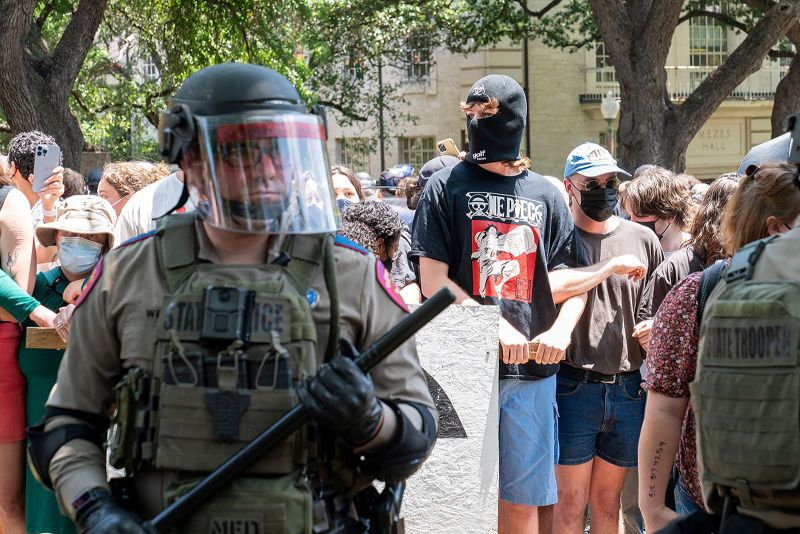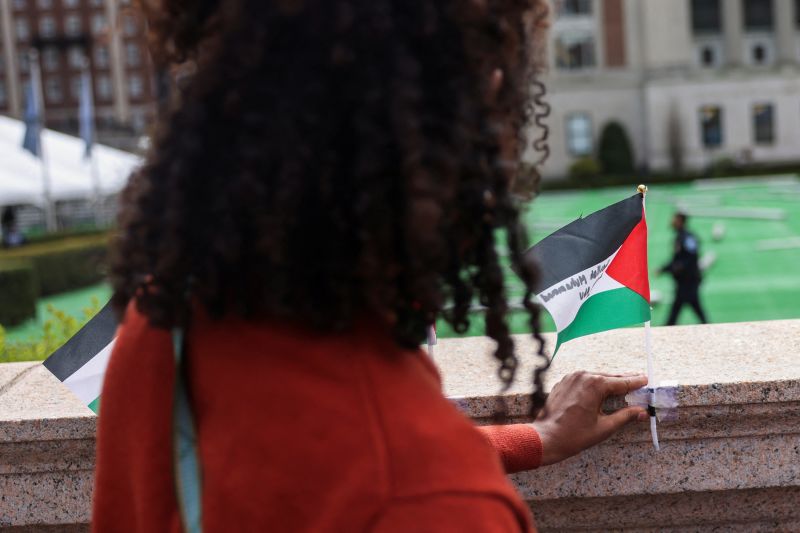Dozens of Columbia University students are occupying Hamilton Hall, one of the campus buildings occupied during 1968 student protests, according to a social media post early Tuesday from Columbia Students for Justice in Palestine.
Overnight, protesters on campus made their way from the West Lawn encampment to Hamilton Hall, one of the main academic buildings for undergraduates.
Hours earlier, the university announced it had begun suspending students who refused to leave the encampment before a 2 p.m. Monday deadline set by the administration.
A large group of protesters rallied in front of Hamilton Hall early Tuesday, chanting the call-and-response, "What do we want? Justice. When do we want it? Now."
Aerial footage from Freedom News TV showed several dozen people crowded onto the steps of the building. Several people can be seen inside the building and a Palestinian flag is draped out of one window.
At the nearby encampment, a line of marching protesters encircles the tent-covered lawn, appearing to form a picket line around the encampment, the footage shows.
CNN has reached out to Columbia University and the New York Police Department for more information.
Hear from Columbia student and CNN freelancer John Towfighi:






